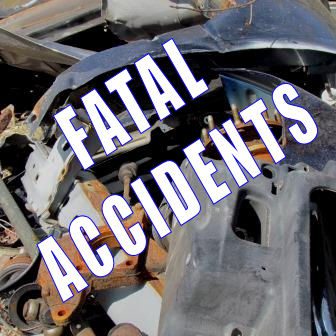
With less traffic on the roads, more fatal accidents?
What?
When traffic volume goes down on the roads, you’d think the number of car accidents would also go down.
Unfortunately, that common-sense thought proved wrong.
While the amount of traffic went down due to “stay-at-home” orders during the height of Covid-19, fatal car crashes took place more than before.
Fewer drivers took their cars out on the road during the height of the pandemic. At the same time, police in many places reported an increase in fatal car accidents.
That’s not me saying that. No less venerable source than the Wall Street Journal reported that a number of states, including Minnesota, Louisiana and Missouri suffered more traffic fatalities during the Covid-19 stay-at-home orders than during the same time period in previous years.
Speeding and aggressive driving ranked as major factors in the higher car accident fatality rates.
Massachusetts and New Hampshire saw more accidents.
Fatal Car Accidents in New Hampshire
The New Hampshire Department of Safety reported that despite less traffic, deadly accidents increased by 70% over the same time period the previous year, before the pandemic.
New Hampshire experienced 34 deadly crashes in the early months of 2020. Eight such accidents saw a pedestrian killed. Fatal car accidents increased 166% in New Hampshire over the same time in 2019.
Fatal Car Accidents in Massachusetts
Massachusetts officials expressed concern over the number of roadway deaths despite lower traffic volume. April 2020 saw roughly 50% less traffic volume on the Commonwealth’s major highways. 28 people died in Massachusetts car accidents in April 2020.
While that’s only one more fatal Massachusetts car accident compared to April 2019, one would think that with greatly reduced traffic, the number of fatal accidents would also go down.
Reduced traffic volume, highway officials observed, led to excessive speed.
“Tensions rose over stay-at-home measures”
NBC.Boston, May 5, 2020
After being cramped at home, once people got out on the open highway, it appears they saw reduced traffic volume as a breath of fresh air, put the pedal to the metal and forgot about speed limits.
How Less Traffic Led to More Fatal Car Accidents
Some states actually reported fewer accidents during stay-at-home orders. But the car accidents that did happen caused more serious injuries. One national watch group documented the following five examples of dangerous driving:
- Speeding, reckless driving and other negligence behind the wheel ran rampant under reduced highway volume.
- Colorado, Indiana Nebraska and Utah police clocked drivers going over 100 miles per hour on highways.
- Los Angeles reports cars driving as much as 30% faster in city limits, requiring changes to traffic lights and pedestrian walk signals.
- New York City’s infamous automatic traffic cameras issued over 24-thousand speeding tickets on one day in March, 2020, almost double the amount in the previous month and despite fewer cars on the street due to pandemic stay-at-home orders.
- Minnesota crash statistics show more than double car accident deaths than the same comparable periods in previous years. Speeding and negligent driving caused half of those fatal highway deaths according to the accident statistics.
Governors Highway Safety Association
So even though traffic volume decreased under stay-at-home orders, the open highways provided an apparent invitation for bad drivers to act out.
“Less Traffic, More Fatal Accidents” Picture not Unanimous
While many states saw more fatal accidents during stay at home orders, others report the opposite. CBS News reported at least 20 states experienced fewer fatal car accidents during stay-at-home orders.
The network claims California reported 84% fewer fatal car accidents at a time when the state saw 35% less traffic. Michigan reports 67% fewer highway fatalities, Illinois 57%.
Whether actual fatal accidents went up or down it appears the nature of regional road networks and the intensity of law enforcement may be one factor behind accident rates. Speeding on open highways and unusually aggressive and careless driving habits rear their ugly heads when there is less traffic.
Among the drivers Minnesota police pulled over was a man clocked going 110 mph who told the officer he was “just out for a joy ride”.
Wall Street Journal, April 30, 2020.
Urgency Behind the Wheel
The Governors Highway Safety Association observed that during the pandemic Americans for the most part showed a willingness to “do the right thing” to stop the spread of the Covid-19 virus. At the same time, the Association warned that the same Americans should “maintain that same sense of urgency” behind the wheel.
For more on Red Light Accidents click here.
The author of this article, attorney Andrew D. Myers, practices personal injury law and other civil litigation in Massachusetts and New Hampshire. Office locations include North Andover, MA and Derry, NH.
Sources:
Absent Traffic Jams, Many Drivers Getting More Reckless, Governors Highway Safety Association, April 16, 2020.
Department of Safety: Despite Less Traffic, Deadly Accidents up 70% From Same Time Last Year, WMUR TV News, May 8, 2020.
Fatal Car Crashes Rise Amid Lockdowns, Wall Street Journal, Calvert, Scott, April 30, 2020.
Several States Report Plummeting Number of Fatal Car Crashes Amid Coronavirus Pandemic, CBS News, May 2, 2020.
Tensions Rise Over Stay-At-Home Measures, NBC.Boston, May 5, 2020.
Visits: 158




